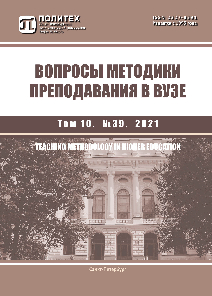Analysis of transition to a totally remote classroom: psychological and methodological aspects
The paper investigates the phenomenon of COVID-19 educational disruption through assessing teaching and learning processes in new realities, psychological challenges and methodological solutions. COVID-19 educational disruption is characterized as a drive to creating innovations in the area of digital teaching and learning processes, which would boost the efficiency of conventional face-to-face education further. First year students (N-350) undertaking English for Medical purposes course at the medical high school (General Medicine and Preventive Medicine Faculties) were surveyed to identify their psychological attitudes towards a totally remote classroom, that was implemented in the synchronous and asynchronous mode through ZOOM video-conferencing and LMS Moodle. Five groups of psychological problems reducing students’ motivation, course satisfaction and learning performance were identified: academic issues; intrusion into privacy; peer issues; soft skills competence problems; change of routine and rituals. These psychological issues challenge all the educational system and have to be taken into account while providing the pedagogic design for new online courses. The authors suggest creating an averaged Student Profile focused not only on the learning outcomes and academic performance, but involving such aspects as students’ background, course satisfaction, motivation, digital awareness, etc. It requires a more thorough and pointed investigation of students’ attitudes, drives, motives in conventional and digital learning environments. Such a widened Student Profile can drive pedagogic designers to efficient methodological solutions in the synchronous and asynchronous remote classroom.



